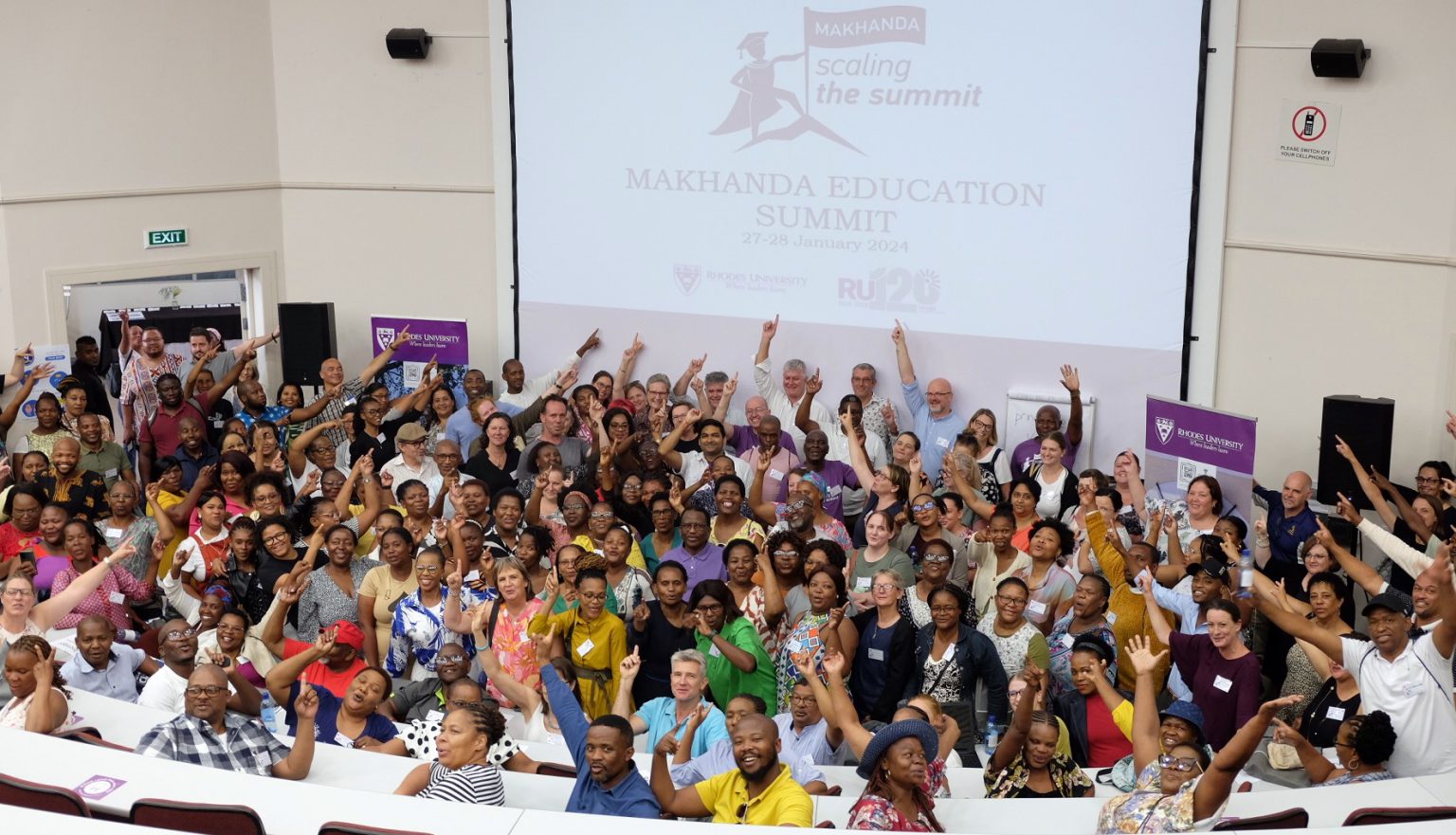By Rod Amner
Makhanda will be the leading academic educational centre in South Africa by 2028.
That bold vision was supported by over 350 energised delegates at Rhodes University at the Makhanda Education Summit on January 27-28.
The summit celebrated Makhanda’s seismic educational ascent over the past decade and crafted a detailed route map to reach the national peak.
Rhodes University Vice Chancellor Prof Sizwe Mabizela said the summit had succeeded beyond his “wildest expectations”.
“We have put education front and centre in all we do in Makhanda. It has been the most enriching, rewarding and fulfilling experience of my life,” he said in his closing remarks.
“Some excellent ideas have emerged from this summit on what we need to do going forward to make Makhanda the leading education city in South Africa.”
“I have been amazed to learn about the incredible services that have benefited our schools and the ECD centres. We have to recognise the assets that are available for sharing. The recurring themes in all the presentations were cooperation, collaboration, and sharing,” Mabizela added.
The summit, the first to be convened by a Vice-Chancellor to plan how to make education the unique selling point of a city, was abuzz with representatives from every school in the city – including three independent schools, ten public high schools, 26 public primary schools, 26 Grade R and 71 ECD centres – donor partners, the Department of Basic Education, the Makana Municipality, several NGOs and Rhodes University staff.
The vision statement: “By 2028, Makhanda emerges as the leading academic educational centre and city in South Africa and is recognised as such, thereby affording all local children and young people the benefit of good quality and relevant education at pre-school, primary, secondary and tertiary levels.”
In 2013, Makhanda was the 10th worst-performing educational district in South Africa. But over the last decade, the Vice Chancellor’s Initiative to Revitalise Public Schooling spearheaded an explosion of partnerships between schools, Rhodes, NGOs and education professionals.
Matric pass rates soared, averaging 83% over the past three years, and the number of Bachelor passes shot up to over 300 annually, up from around 180 in the 2010s. The pass rate target for 2028 is 90%, while the Bachelor pass rate target is 60% (up from an already-impressive 38% in 2023).
Meanwhile, better retention and growth in enrollment in ‘second chance’ schools like the Gadra Matric School mean Grade 12 numbers have grown from 750 in 2017 to 1250 in 2022. According to Gadra Education manager Dr Ashley Westaway, this represents approximately the same number of learners registered in Makhanda for Grade 12 examinations as the number registered annually for Grade 1.
The number of disadvantaged students accessing full-time study at Rhodes has increased more than tenfold over the last decade to approximately 150 in 2023. The target for 2028 is 200 disadvantaged students.
Research conducted by Gadra Education in partnership with the Rhodes Education Faculty revealed that 40% of Makhanda’s Grade 4s can read for meaning compared with 19% nationally.
However, there are still significant challenges to overcome. Less than 50% of local pre-Grade R children are registered in early childhood centres (ECD) as the state does not offer free ECD services. In the primary and secondary sectors, teacher burnout, low literacy levels, inadequate parental support, Makhanda’s dilapidated municipal infrastructure, poverty, a minority of complacent teachers and weak government education policy and implementation were highlighted as weaknesses and threats.
Nevertheless, a comprehensive programme of actionable tasks was developed by delegates to build on the city’s considerable educational assets and opportunities, and ululating delegates were left with a palpable sense of optimism when they left on Sunday.


